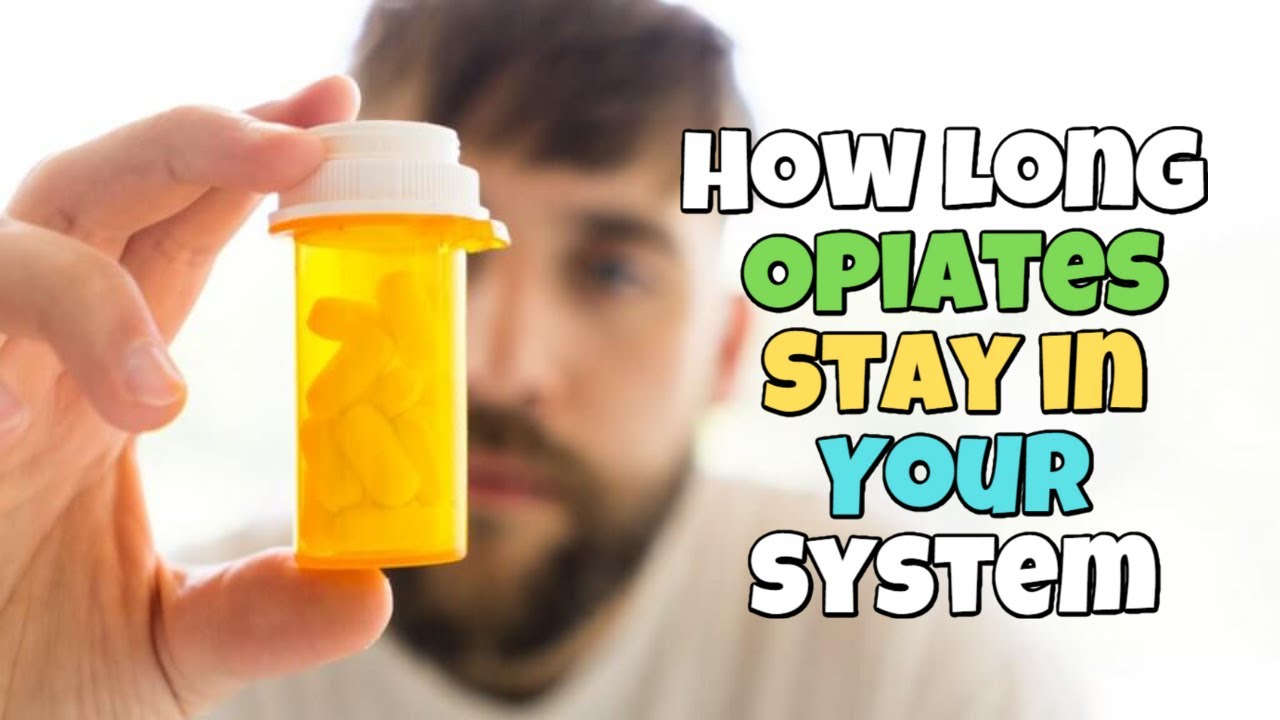Initially, fentanyl was developed as a synthetic opioid designed to alleviate severe pain resulting from accidents or surgical procedures. Its exceptional effectiveness in pain relief is attributed to its potency, requiring smaller doses than other painkillers. Fentanyl’s potency, being up to 100 times stronger than morphine, makes it a preferred option for managing intense pain in patients. However, this heightened potency contributes to the heightened risk of overdose when individuals seek to replicate the drug’s effects, making fentanyl one of the most challenging substances to get addicted to.
If you’re noticing signs of Fentanyl addiction in your loved ones, We Level Up Treatment Centers can help. Connect with our hotline specialists today to explore the range of support and accredited addiction treatment programs we provide.
What Is Fentanyl?
Fentanyl, a synthetic opioid, surpasses heroin’s strength by up to 50 times and is 100 times more potent than morphine. Its illicit usage is strongly linked to a considerable number of opioid-related overdose fatalities. In illegal contexts, fentanyl is often blended with heroin or cocaine to intensify the euphoric effects, sometimes unbeknownst to the user.
In clinical settings, physicians turn to fentanyl when other pain-relief methods have proven ineffective, particularly after surgeries or during cancer treatment. Fentanyl is available in various forms and brand names:
- Duragesic: An FDA-approved patch designed to alleviate moderate to severe ongoing pain, with effects lasting up to three days.
- Abstral: A quick-dissolve tablet used to manage breakthrough pain or severe pain episodes, especially in patients undergoing continuous pain medication.
- Actiq: A tablet placed under the tongue to relieve intense and persistent severe pain.
- Sublimaze: Often administered with anesthetics, this fentanyl type is injected before and after surgeries to control pain.
- Lazanda: A nasal spray employed to alleviate pain in cancer patients.
The surge in recent overdoses is primarily linked to the illicit usage of fentanyl. On the black market, illegal forms of fentanyl are sold as a powder, contained in eye droppers or nasal sprays, applied to blotter paper, or crafted into pills resembling other prescription opioids.
Some drug traffickers blend fentanyl with common drugs like heroin, methamphetamine, MDMA, and cocaine due to its high potency and cost-effectiveness. This practice poses severe risks, particularly to individuals unaccustomed to the potent strength of this opioid. Unaware consumption of fentanyl significantly heightens the likelihood of an overdose.
Signs of Fentanyl Addiction
Fentanyl, an exceptionally potent synthetic opioid, surpasses morphine’s strength by about 100 times. While utilized in medical settings for severe pain relief and anesthesia, its misuse and addiction potential are alarmingly high, mainly when consumed in doses manufactured illicitly.
Consequently, fentanyl abuse presents a severe public health crisis, posing grave risks to those who use it. This drug can be ingested, snorted, injected, or smoked and is frequently combined with substances like heroin and cocaine, amplifying its dangers. Misuse of fentanyl significantly heightens the risk of overdose and death.
Recognizing the signs of fentanyl addiction is crucial in identifying individuals grappling with this condition. Common indicators of fentanyl addiction include:
- Significant disruptions in sleeping patterns or sleep disturbances.
- Unexpected or rapid weight loss.
- Decreased ability to concentrate or maintain focus.
- Slowed reflexes.
- Fluctuating moods, including depression or agitation.
- Intense cravings for fentanyl or other opioids.
- Strained personal relationships and social disengagement.
- Continued usage despite detrimental effects on physical health and mental stability.
Fentanyl Withdrawal Symptoms
Fentanyl, highly potent and addictive, can lead to dependence even when taken as prescribed. The cessation of fentanyl use often triggers a range of withdrawal symptoms. While dependence doesn’t always equate to addiction, it can pave the way for addictive behaviors in some instances.
Fentanyl addiction can profoundly disrupt a person’s life, reshaping their behavior, social circles, and overall mindset. Effective professional treatment is imperative for substance abuse disorders like fentanyl addiction.
Over time, withdrawal symptoms associated with fentanyl use can intensify if left unaddressed. Some common withdrawal symptoms include:
- Sleep disturbances.
- Intense cravings for the drug.
- Aches in bones and muscles.
- Nausea and diarrhea.
- Chills and goosebumps.
- Involuntary leg movements.
These distressing symptoms can significantly challenge addicts attempting to quit. Fortunately, rehabilitation centers like Free by the Sea provide support to make the recovery process practical and comfortable. With a dedicated staff and round-the-clock assistance, we aim to guide you toward a brighter and happier future.

Skip To:
Learn More:
- What Does Fentanyl Look Like?
- What Is Fentanyl?
- How Long Does Fentanyl Stay In Your System
- Fentanyl Withdrawal
- Vicodin vs Norco, What’s The Difference & How Do They Compare?
- How Long Does Hydrocodone Stay in Urine?
- What is Norco? Norco Drug For Severe Pain Information
- The Dangers of Hydrocodone Addiction, Symptoms & Treatment
- Hydrocodone Side Effects, Uses, Addiction and More
- Is Oxycodone Addictive
- What Is Oxycodone?
- Oxycodone Side Effects
- Opiate Withdrawal
- Opioid Withdrawal Timeline
- Opioid Withdrawal Symptoms
- Tramadol vs Oxycodone: Which is Better? Side Effect Comparison
- Oxycodone Dosage Guide, Precautions, and Max Dose
- Oxycodone Vs Oxycontin. Differences & Similarities, Abuse & Treatment Options
Get Help. Get Better. Get Your Life Back.
Searching for Accredited Drug and Alcohol Rehab Centers Near You? We Level Up Texas Is Ready To Help!
Even if you have failed previously and relapsed, or are in the middle of a difficult crisis, we stand ready to support you. Our trusted behavioral health specialists will not give up on you. When you feel ready or just want someone to speak to about therapy alternatives to change your life call us. Even if we cannot assist you, we will lead you to wherever you can get support. There is no obligation. Call our network hotline today.
FREE Addiction Hotline – Call 24/7
Short-Term Effects of Fentanyl
Immediate and profound effects may be experienced by individuals using fentanyl, whether intentionally or accidentally. Common short-term physical effects of fentanyl include:
- Intense euphoria: Fentanyl triggers a rapid feeling of pleasure and relaxation.
- Sedation: Fentanyl may induce extreme drowsiness or sedation, affecting normal functioning.
- Respiratory depression: Its impact on breathing can cause slowed or shallow breathing, leading to decreased oxygen supply and potentially respiratory failure.
- Nausea and vomiting: Fentanyl use can result in discomfort and potential dehydration due to nausea and vomiting.
- Confusion and disorientation: Fentanyl might cause confusion, disorientation, and impaired cognitive function, hindering clear thinking or sound judgment.
Long-Term Effects of Fentanyl
Continued fentanyl use can severely impact both physical and mental health over time. Some long-term side effects include:
- Tolerance and dependence: Prolonged fentanyl use may result in tolerance, requiring higher doses for the same effect. This can lead to dependence, where quitting or reducing usage causes withdrawal symptoms.
- Addiction: Fentanyl’s strong euphoric effects can trigger compulsive drug-seeking behavior, creating a challenging cycle of addiction, both physically and psychologically.
- Organ damage: Fentanyl abuse can harm vital organs, particularly the liver, kidneys, and heart. Reduced oxygen due to respiratory issues can also damage various body systems.
- Mental health disorders: Fentanyl use raises the risk of developing mental health issues like anxiety and depression by disrupting brain chemistry and impacting neurotransmitters’ natural balance.
Why is Fentanyl so Lethal?
Even the tiniest amount of fentanyl, just two milligrams, can dramatically slow down or completely halt your breathing. Insufficient oxygen reaching the brain can result in coma, permanent brain damage, and, ultimately, death.
A barely visible speck of fentanyl is potent enough to be fatal. Dealers are increasingly using larger quantities of this synthetic opioid to dilute their drugs. This lethal mixture has led to fentanyl overdoses becoming the leading cause of death among American adults aged 18 to 45, as reported by the Centers for Disease Control & Prevention (CDC).
In 2021, an estimated 77% of overdose deaths in the United States involved fentanyl.
Symptoms of Fentanyl Overdose
- Drowsiness, lethargy, lightheadedness, or dizziness.
- Severe challenges with balance, walking, and reduced motor coordination.
- Reports of nausea and vomiting.
- Substantial mental state alterations include slurred speech, slowed thought processes (observed through prolonged speech), confusion, irrational behavior, and aggression.
- Pinpoint pupils, bluish or purplish lips, hands, feet, fingernails, and toenails.
- Noticeable slow or shallow breathing, potentially leading to the cessation of breathing or gurgling sounds.
- Significant drop in blood pressure and heart rate.
- Loss of consciousness or entering a comatose state.
The lethal effects resulting from a fentanyl overdose primarily occur due to the drug’s substantial suppression of the respiratory system, often leading to difficulty or complete cessation of breathing, caused by its central nervous system depressant effects.
Get Help. Get Better. Get Your Life Back.
Searching for Accredited Drug and Alcohol Rehab Centers Near You? We Level Up Texas Is Ready To Help!
Even if you have failed previously and relapsed, or are in the middle of a difficult crisis, we stand ready to support you. Our trusted behavioral health specialists will not give up on you. When you feel ready or just want someone to speak to about therapy alternatives to change your life call us. Even if we cannot assist you, we will lead you to wherever you can get support. There is no obligation. Call our network hotline today.
FREE Addiction Hotline – Call 24/7How Fentanyl Abuse Begins
Understanding the typical paths to fentanyl addiction is crucial for recognizing warning signs in yourself or a loved one, mainly if the opioid is prescribed. Often, the stories of painkiller addiction originate from legitimate prescriptions. Even when taken as directed, prolonged exposure to fentanyl alters brain function, leading to dependence on the drug for normal functioning.
Fentanyl changes the brain’s natural production of euphoria-inducing chemicals like dopamine. Acting as a substitute for dopamine, fentanyl causes the brain to reduce its output since the drug takes over. When fentanyl use stops, the central nervous system struggles to generate dopamine, making it challenging to experience pleasure until the body thoroughly detoxifies from the drug.
Breaking the brain’s reliance on substances like drugs or alcohol involves a period of withdrawal symptoms during the healing process. Withdrawal symptoms encompass both physical and psychological effects, making it challenging to manage alone. In severe abuse cases, attempting detox without medical assistance can even be life-threatening due to intensified withdrawal symptoms. Seeking medical detox from a reputable treatment center is strongly recommended.
What to do if Someone Overdoses on Fentanyl
- Immediately contact medical emergency services (call 911).
- Refrain from attempting CPR or giving medications unless adequately trained.
- If the individual is breathing, place them on their side to prevent choking in case of vomiting.
- Trained responders can position the person in the standard recovery stance, ensuring open airways.
- Avoid giving any fluids; stay with the person and monitor their breathing until help arrives.
- Naloxone (brand name: Narcan), if available and administered by trained individuals, can potentially save a person’s life. Naloxone functions as an opioid antagonist, binding to brain opioid receptors, displacing any opioids present, and triggering an immediate withdrawal response. Swift administration of naloxone can avert a potentially fatal situation.
The Significance of Seeking Treatment for Fentanyl Addiction
Seeking support is a pivotal step toward successful recovery from fentanyl addiction. Professional treatment centers play a crucial role by providing individuals with essential knowledge and resources and fostering healthy relationships through peer groups and activities. These centers often offer aftercare programs, aiding in maintaining a long-term sobriety plan. Treatment options range from inpatient and outpatient care to home detox programs, recognizing that each person’s path to recovery is unique. It’s essential to explore options to find the most suitable approach for oneself or a loved one.
Deciding to seek help for fentanyl addiction can be challenging, yet it holds the potential to save lives. With the right approach and adequate support, individuals can break free from addiction and regain control of their lives. For more insights into treatment options for fentanyl addiction, consulting a medical professional or reaching out to an addiction treatment facility is recommended. Taking this initial step toward recovery could be the most pivotal decision one makes.
Wherever one stands in their journey with fentanyl addiction, support and resources are accessible. Embracing help might unlock the door to a healthier, happier life. Don’t hesitate to reach out for assistance – it could be the catalyst for positive change.

First-Class Facilities & Amenities
World-Class High-Quality Addiction & Mental Health Rehabilitation Treatment
Rehab Centers TourRenowned Addiction Centers. Serene Private Facilities. Inpatient Rehab Programs Vary.
FREE Addiction Hotline – Call 24/7Proven recovery success experience, backed by a Team with History of:
15+
Years of Unified Experience
100s
5-Star Reviews Across Our Centers
10K
Recovery Success Stories Across Our Network
- Low Patient to Therapist Ratio
- Onsite Medical Detox Center
- Comprehensive Dual-Diagnosis Treatment
- Complimentary Family & Alumni Programs
- Coaching, Recovery & Personal Development Events
Fentanyl Addiction Treatment
The path to recovery from fentanyl addiction may involve discomfort and challenges, but seeking treatment is essential for regaining control of life. There are various treatment avenues available to break the cycle of addiction and attain lasting recovery.
We offer a range of comprehensive treatment options tailored to address fentanyl addiction. It’s crucial not to delay seeking help and take a step towards recovery today. Let’s explore some of the addiction treatment alternatives provided by We Level Up Texas for fentanyl addiction:
1. Fentanyl Detoxification:
The initial stage of most addiction treatment protocols involves detoxification. Detox aims to rid the body of all substances, alleviating some of the severe withdrawal symptoms. While detox is a crucial step, it alone cannot address addiction entirely; however, it sets the groundwork for further treatment options.
2. Medication-Assisted Treatment:
Given the potency of fentanyl, certain medications like methadone and buprenorphine are sometimes incorporated into treatment plans. These medications act on the same brain opioid receptors as fentanyl, diminishing withdrawal symptoms and managing intense cravings. We conduct thorough evaluations to determine the suitability of medications as part of your treatment plan.
3. Therapeutic Interventions:
Therapy is a fundamental aspect of addiction treatment. Fentanyl addiction not only affects the body but also has profound mental and emotional repercussions. We Level Up Texas provides a diverse range of personalized therapy options tailored to your needs:
- Motivational Interviewing: A technique to inspire motivation and acceptance of positive change.
- Cognitive-Behavioral Therapy (CBT): A widely utilized approach targeting behavioral and thought pattern alterations, stress management, and trigger control.
- Group Therapy: A supportive environment for sharing experiences and connecting with individuals facing similar challenges.
These therapy options are just a few available and are selected based on individual needs. Our We Level, Up Texas team is committed to guiding you toward the most effective treatment plan tailored to your unique circumstances and preferences.
Why Choose We Level Up Treatment Centers?
At Level Up Treatment Center, our dedicated team of professionals is committed to guiding you through every step of your recovery journey. We prioritize your well-being and provide a nurturing environment conducive to healing and growth.
Take the first step towards recovery today. Contact us to begin your journey to a drug-free life. You don’t have to face addiction alone—we are here to help you reclaim control and achieve lasting sobriety.
Start a New Life
Begin with a free call to an addiction & behavioral health treatment advisor. Learn more about our dual-diagnosis programs. The We Level Up treatment center network delivers recovery programs that vary by each treatment facility. Call to learn more.
- Personalized Care
- Caring Accountable Staff
- World-class Amenities
- Licensed & Accredited
- Renowned w/ 100s 5-Star Reviews
We’ll Call You
How Long Do Opiates Stay in Your System?
Search We Level Up TX Signs of Fentanyl Addiction, Withdrawal & Overdose Treatment Topics & Resources
Sources
- Accidental exposures to fentanyl patches continue to be deadly to children. (2021).
https://www.fda.gov/consumers/consumer-updates/accidental-exposures-fentanyl-patches-continue-be-deadly-children Fentanyl addiction, Is fentanyl addictive? Addicted to fentanyl, how addictive is fentanyl, fentanyl addiction treatment – Related Articles - Facts about fentanyl. (n.d.).
https://www.dea.gov/resources/facts-about-fentanyl Fentanyl addiction, Is fentanyl addictive? Addicted to fentanyl, how addictive is fentanyl, fentanyl addiction treatment – Related Articles - Fentanyl. (2020). Fentanyl addiction, Is fentanyl addictive? Addicted to fentanyl, how addictive is fentanyl, fentanyl addiction treatment – Related Articles
https://www.dea.gov/sites/default/files/2020-06/Fentanyl-2020_0.pdf - Fentanyl overdose symptoms, signs & treatment. (2021). Fentanyl addiction, Is fentanyl addictive? Addicted to fentanyl, how addictive is fentanyl, fentanyl addiction treatment – Related Articles
https://americanaddictioncenters.org/fentanyl-treatment/symptoms-associated-with-a-fentanyl-overdose - Fentanyl side effects. (2019). Fentanyl addiction, Is fentanyl addictive? Addicted to fentanyl, how addictive is fentanyl, fentanyl addiction treatment – Related Articles
https://americanaddictioncenters.org/fentanyl-treatment/side-effects - How much fentanyl will kill you? (2018). Fentanyl addiction, Is fentanyl addictive? Addicted to fentanyl, how addictive is fentanyl, fentanyl addiction treatment – Related Articles
https://www.harmreductionohio.org/how-much-fentanyl-will-kill-you-2/ - What is fentanyl? (2021).
https://www.cdc.gov/drugoverdose/opioids/fentanyl.html - NIDA. “Fentanyl Drug Facts.” National Institute on Drug Abuse, 1 Jun. 2021, https://nida.nih.gov/publications/drugfacts/fentanyl






